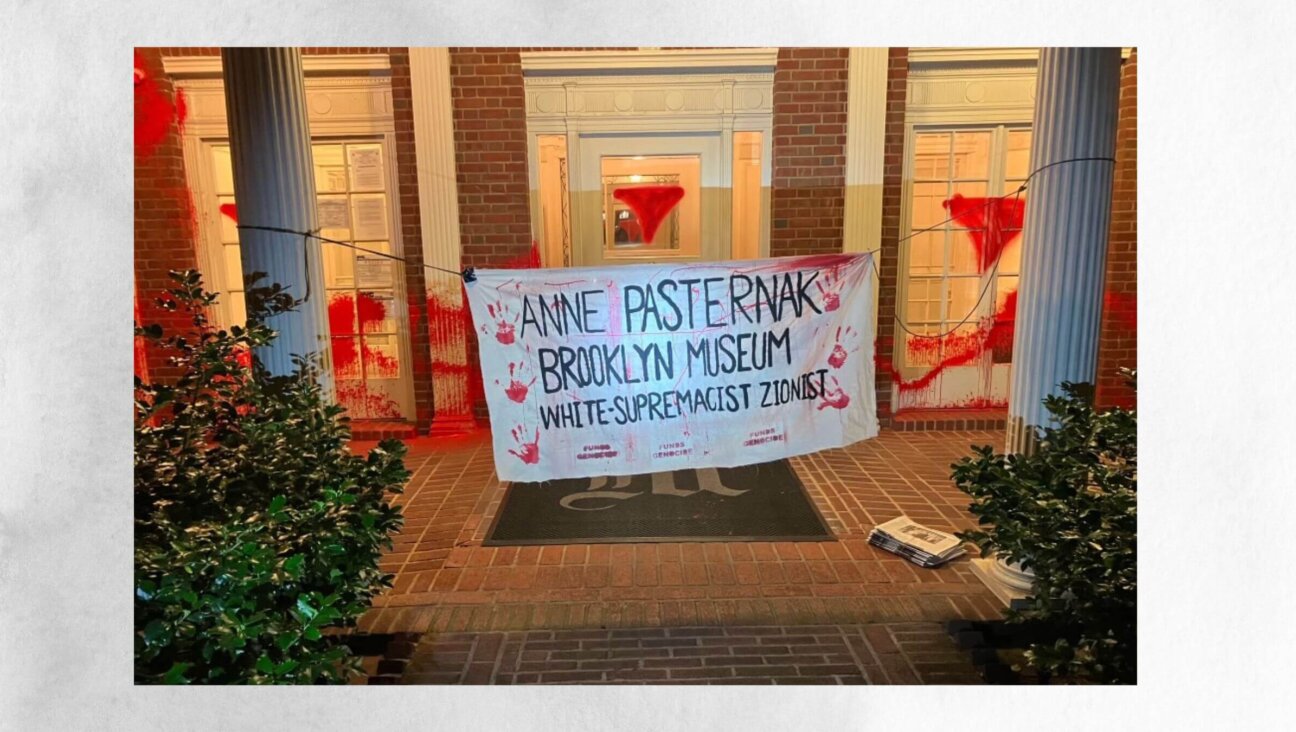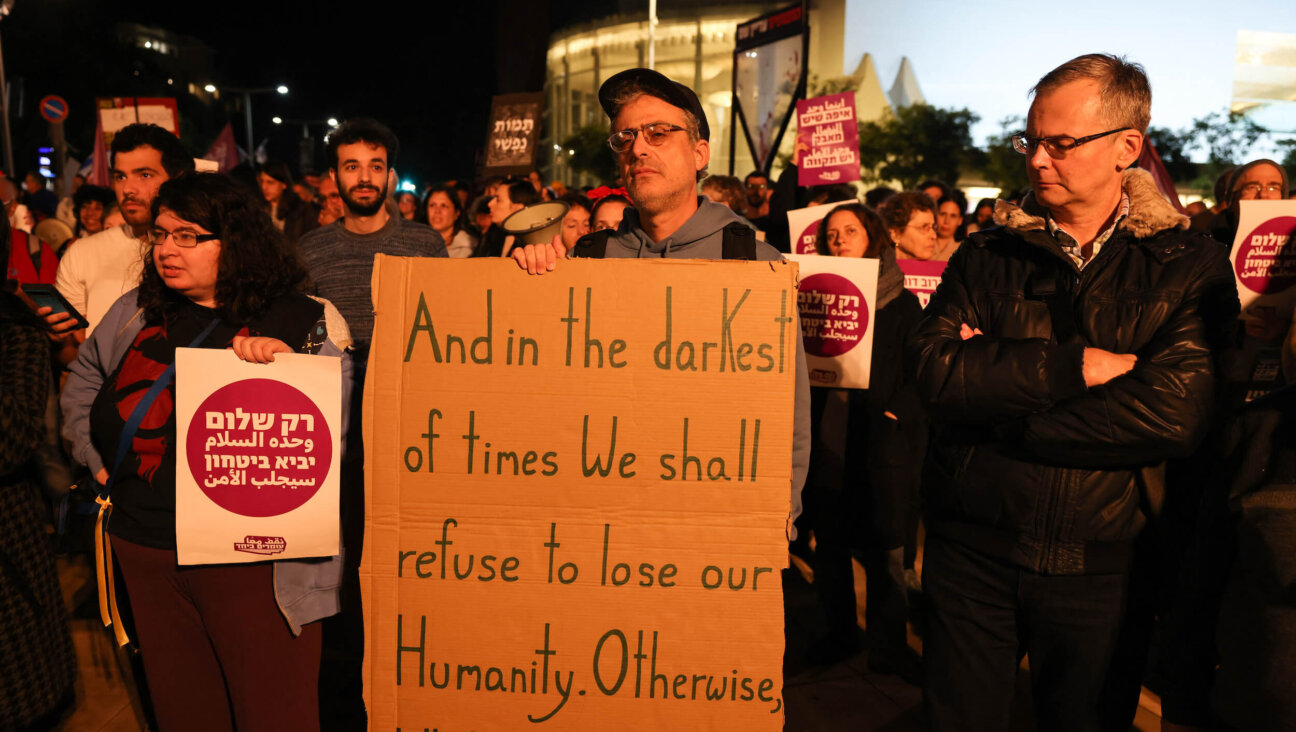Passover in wartime: As freed Hebrew slaves, we must always protect the oppressed
An IDF reservist reflects on the complexity of operations that can be both justified and unjust

Palestinians recover items from rubble in Nuseirat camp, central Gaza Strip, on Thursday, April 18, 2024. Photo by Ahmad Salem/Bloomberg via Getty Images
The first time I cried in the army was a decade ago, when I participated in the lockdown of Palestinian neighborhoods in Hebron for an Israeli vigil to pray for three yeshiva students who had been kidnapped while waiting for a ride in the occupied West Bank.
During the military operation to try to rescue the missing boys, their mothers were leading a march to the Cave of the Patriarchs, a holy site in Hebron that has been a locus of tension between Israelis and Palestinians for decades. We soldiers were stationed every 50 meters or so, to keep the roads around Hebron’s old city closed and the Palestinian residents from interfering with the march.
Until that terrible time in the spring of 2014, I had felt so safe, and secure in my religious Zionist values. But as the vigil was wrapping up, a few Palestinian children, perhaps 4 or 5 years old, emerged from a house and approached me with curiosity, trying to touch my gun and make me laugh. For the first time, I felt like a complete stranger in what I had always thought of as my homeland, unable to communicate with these children, and on a mission that felt simultaneously justified and invasive.
It was after the children went back inside that the tears came. I stood on that street in Hebron, in my uniform and with my weapon, suddenly unsure of what, exactly, I was protecting. I realized that I do not actually understand anything about the reality here, and that the story is so complex that when we approach it with a ready-made narrative, we often ignore the actual lived experience of those around us.

We have no choice but to serve our country, and that sometimes involves hurting other people — but we also cannot ignore the impact that it has on those people, like locking little kids in their houses for hours.
I’ve been thinking anew about that day as Passover approaches in the seventh month of this new-old war between Israel and Hamas. It is a war I see as necessary and justified by the heinous Oct. 7 terror attack, but I also see the destruction and death toll in Gaza as horrific. This, to me, is the Jewish test: How do we use our power in the most moral way possible to protect all who need protecting?
The Passover story that we have been telling for the past 3,000 years and will tell for the next 3,000 is what unites everyone who sees themselves as part of the Jewish people. “In each and every generation,” we are taught, “a person must view themself as though they personally left Egypt.”
This year, too, we will sit at our Seder tables and tell our children: “We were slaves — and now we are free.” Our freedom is defining our own identity, not accepting anyone else’s labels regarding religion, national, culture or race.
No matter how awful our current reality is — or how terrible the past six months have been — our resilience must orient us towards a mindset of being released from captivity. That is the beginning of the story of the Jewish people, of our destiny.
We must refuse to be victimized, murdered and oppressed. But we are also required to take responsibility for our freedom. This means responsibilities for all Jews, responsibilities for all minorities in Israel, and responsibility, too, for relationships with our neighbors.
The Jewish people were born in a world where the reality of freedom for any people could feel impossible. On the banks of the Red Sea, with the Egyptian army chasing the Israelites, God says to Moses: “Why are you crying out to Me? Speak to the Israelites and move forward.” God commands Moses to create the miracle himself rather than wait for the miracle to happen.
On this Passover, knowing I could be called back to reserve duty any day, I feel it’s essential to remember that at my core I am a freed Hebrew slave. That we are all freed Hebrew slaves. We must remember the suffering we experienced as a persecuted minority — even as we use the power we have amassed to protect other persecuted minorities who are being trampled and run down by the world.
Yes, first of all to protect the freed Hebrew slaves, to protect ourselves from any attempt of oppression and violence. But not only ourselves.
















